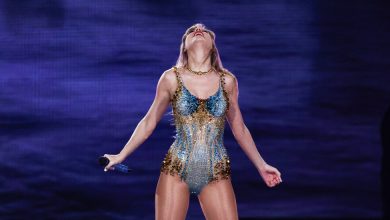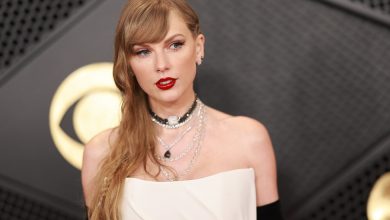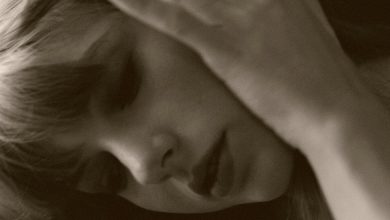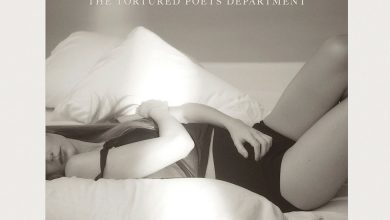What Does it Mean to be Blind? A Writer Chronicles The Loss of His Vision
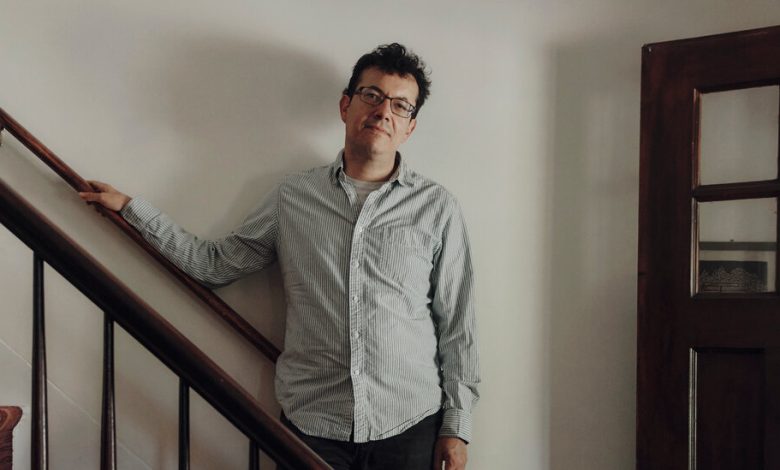
In 2019, Andrew Leland began writing a book about blindness, even as he was going steadily blind himself.
Working as his vision deteriorated gave him an insider’s perspective — who better to write about the blind than the blind? — but, as he learned, also made writing and reporting the book something of a trial.
He’d jot down notes with fat-tipped pens during interviews so he could more readily see what he was writing; later, he used a six-button Braille display, an electronic note-taking tool that he was still mastering. “When I downloaded my notes onto my computer,” he recalled, “it looked like I had had a bottle of scotch before writing them.”
At first, he figured his experience made for the perfect story arc: He would start the book sighted, and end it when he was blind. But that plan soon fizzled. How would Leland know when he was really blind?
As he notes in the book, only about 15 percent of blind people have absolutely no light perception; most see something, like Leland, whose peripheral vision is now less than 6 percent of a full visual field. If he waited until he was completely blind, he thought, he might be 80, “still hanging on to eight photons of vision, going, ‘Well, I can’t write it yet.’”
Leland plowed ahead and finished his book, “The Country of the Blind: A Memoir at the End of Sight,” in three years. Out on July 18 from Penguin Press, the book mixes memoir and reportage with fascinating dips into everything from the development of Braille to the history of the blind civil rights movement. James Joyce, Jorge Luis Borges and Henri Matisse also make appearances.
The memoir confronts many questions, chief among them: What does it mean to be blind in a world that often defines blindness as the worst thing that could possibly happen?
“Blindness presents itself at first as this intractable disaster, that all the things you loved are now taken away from you, and there’s no way to get them back,” Leland said. “The reality is, they’re not gone. You just have to figure out a workaround.”
Leland was in middle school when he realized that he could barely see at night. In college, a doctor told him he had retinitis pigmentosa, an incurable disease, and that he could expect to have decent daytime vision into his 30s, but when middle age hit, his peripheral vision would rapidly erode until all he could see would be a tiny spot straight in front of him.
In 2009, when Leland was working as an editor at The Believer, a literary magazine based in San Francisco, he met Lily Gurton-Wachter, then a doctoral candidate in comparative literature. The two fell in love. When Leland proposed to her, he half-jokingly asked, “You remember I’m going blind, right?”
Gurton-Wachter, now a literature professor at Smith College, plays an important role in Leland’s memoir, as does their son Oscar, now 10. She appears in many of the book’s best scenes, including one in which a boorish guest at a dinner party — a dad whom Leland describes as “looking like an L.L. Bean model” — begins asking a series of invasive questions about how Leland felt about being blind. Then, he asks Gurton-Wachter what it was like having a husbandwho was losing his vision.
Gurton-Wachter remembered the interaction as “very awkward,” she said, and a sign that “we weren’t going to hang out with those people again.”
But to Leland, the scene, with its thoughtless cruelty, had loomed much larger — something Gurton-Wachter only realized when she read the book.
The chasm between how blind and sighted people often perceive things is a major theme of the book. Much of the drama centers on how both Leland and Gurton-Wachter gain a deeper understanding of what it means to be blind, and how others view blindness — or choose not to.
In another scene, a youth leader reads a poem by Billy Collins during a Rosh Hashana service. Leland, his family and his friends listen to the poem and its refrain — “fall to your knees and thank God for your eyesight”— in uncomfortable silence. Later, Gurton-Wachter emailed the rabbi, suggesting that a more inclusive poem might be a better choice in the future.
“Years ago, if I had heard that poem, I might not have thought it was a great poem, but I wouldn’t have really understood its issues with ableism,” she said, using a term that broadly refers to behaviors, speech, norms or laws that demean or devalue disabled people.
“But now, I see the way we use metaphors of vision and blindness in everyday speech, on TV shows or movies,” she said. “It’s everywhere.”
The book also follows Leland as he visits blind artists, engineers, and activists, including Emilie Louise Gossiaux, an award-winning sculptor and painter who lost her vision in 2010, and Erin Lauridsen, the director of access technology at one of the country’s most innovative blindness rehabilitation centers.
At one point, Leland travels to the Colorado Center for the Blind for two weeks of training. Students there take classes in philosophy and woodworking, learn to kayak and rock climb, hone their cooking and kitchen skills, and navigate the area, all while wearing sleep shades (essentially, heavy-duty sleep masks) that completely block their vision.
The idea, said Julie Deden, the center’s director, is to build confidence and independence. “It’s very liberating when they discover that they’re able to do all those things without having any vision,” she said.
Leland found the training transformative. “Just sitting in a room wearing sleep shades, hanging out with other blind people wearing sleep shades, there was just a feeling of absolute normalcy and camaraderie and joy,” he said.
Leland also takes on questions about being blind that many of us might never ask, or might not know whom to ask. Like: Can blind people be racist, since they don’t “see” color? (Yes.) Do blind guys want to know if the woman they’re speaking to is pretty? (Some do.) Why do blind people like to dress up? (Because they’re human.)
Over the years, Leland worked hard to improve his mastery of technology like screen readers, software programs that allow visually impaired users to read the text on a computer screen. He made the decision after a blind woman told him that he should learn now, rather than when his sight was gone for good, an experience that for many can be an emotional tornado.
“I’ve heard stories of people having a lost month, but I’ve also heard stories of people having a lost five or 10 years,” he said. “That’s not the time you want to be trying to memorize keyboard shortcuts.”
Much of the book was written during the pandemic lockdown. The writing process, he said, kept him going despite his declining vision and accompanying worries about the future. The book, after all, was about blindness, so everything was grist for the mill: the struggles and heartaches, as well as the companionship and connection that came from being with other blind people.
“If I had just been working a job where nobody cared about what I was going through and it was just purely impeding my progress, it would have been very difficult,” he said. But given the fact that he was writing about blindness, “losing vision almost felt productive. I was kind of like, Oh, this stinks, but then again, excellent. I can meticulously observe this process and write about it, and I’m getting work done.”
